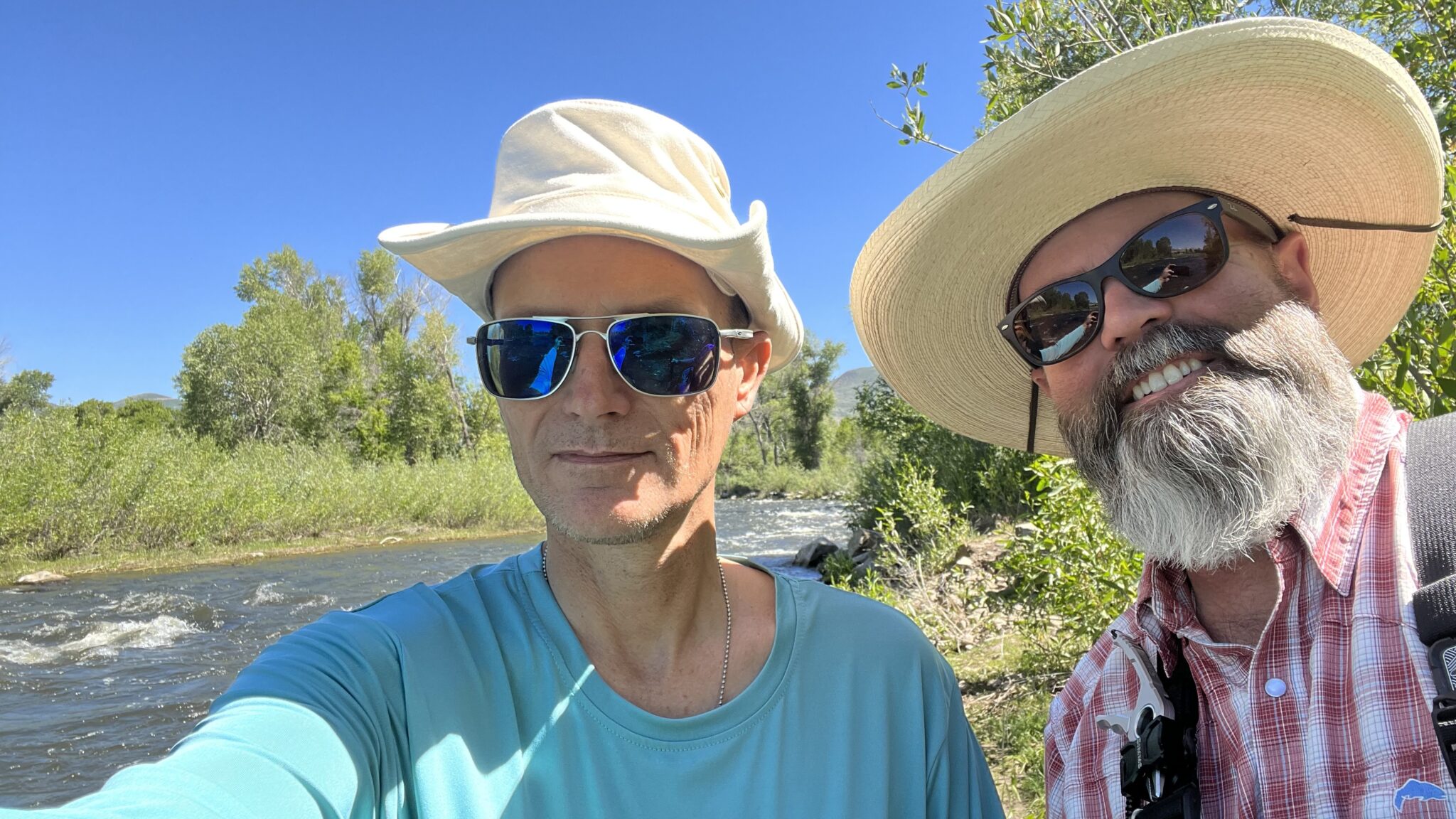
Jason Klass (left) and John Vetterli at the 2023 Oni School in Provo, Utah.
When tenkara first appeared on the western fly fishing scene …
It instantly garnered a lot of misconceptions, misinformation, and myths–some of which are (unfortunately) still prevalent today!
In this episode, my guest John Vetterli and I explore some of the most common misperceptions of tenkara. John was an early pioneer of tenkara in the U.S. and is one of the founders of Tenkara Guides, the top tenkara guiding service in Utah.
He’s fluent in the style of Tenkara no Oni and conducts authorized Oni Schools which attract anglers from around the country who want to learn his tactics the most authentic way possible aside from flying to Japan!
Before we talked, John and I each made a list of the most common myths we’ve heard throughout our tenkara careers. Some are plausible, some are just ridiculous. And we go through them one by one, scrutinizing each with our combined 25 years of tenkara experience and personal anecdotes–including a story involving tenkara, a samurai sword, and the cops!
So take a listen and see if any of your impressions or beliefs about tenkara made the list!
Jason’s List
That’s page one of two. We didn’t get to all of them, but maybe that’s cause to have a sequel!
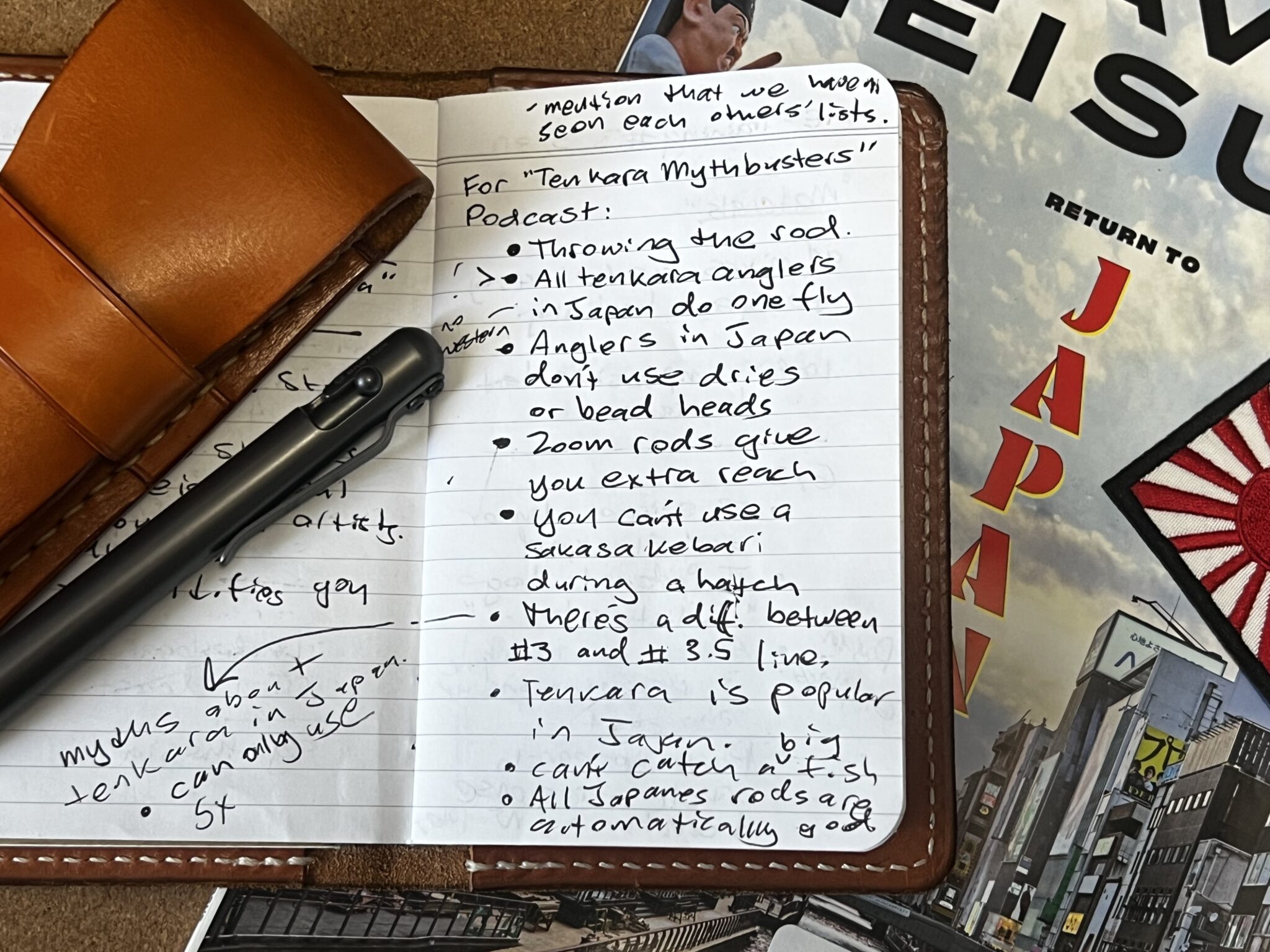
John’s List
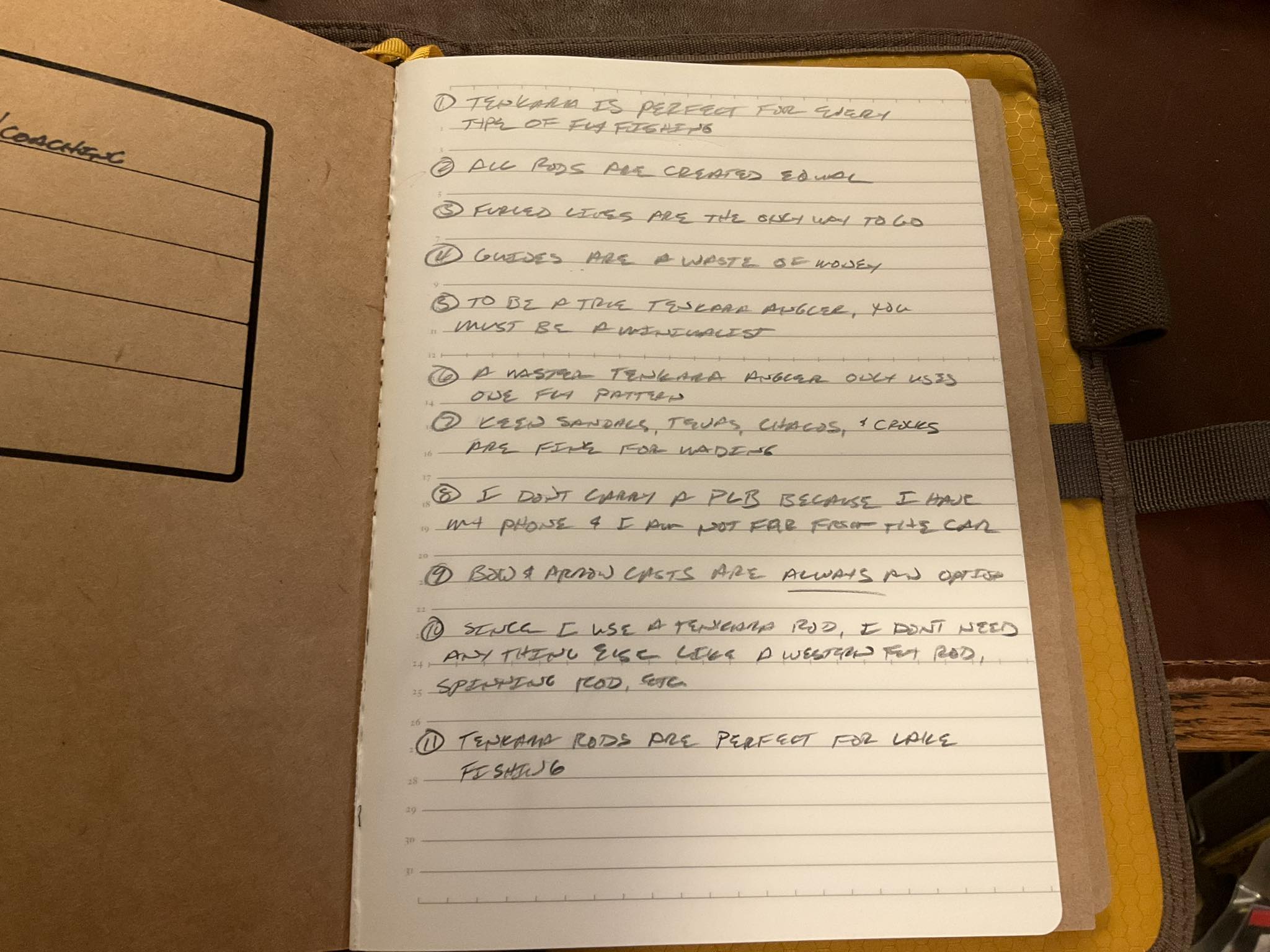

 In this ongoing series,
In this ongoing series, 






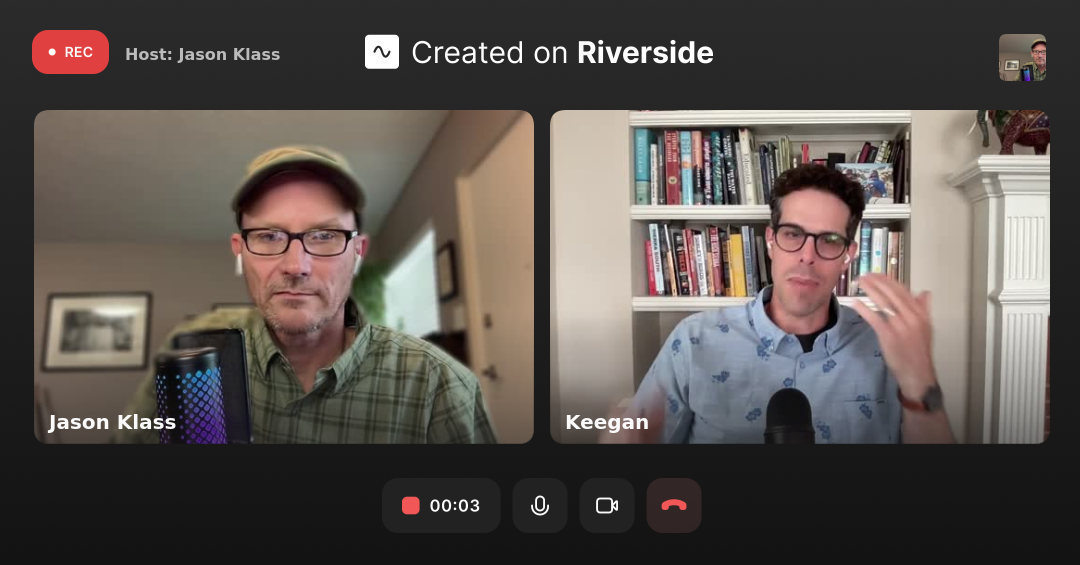
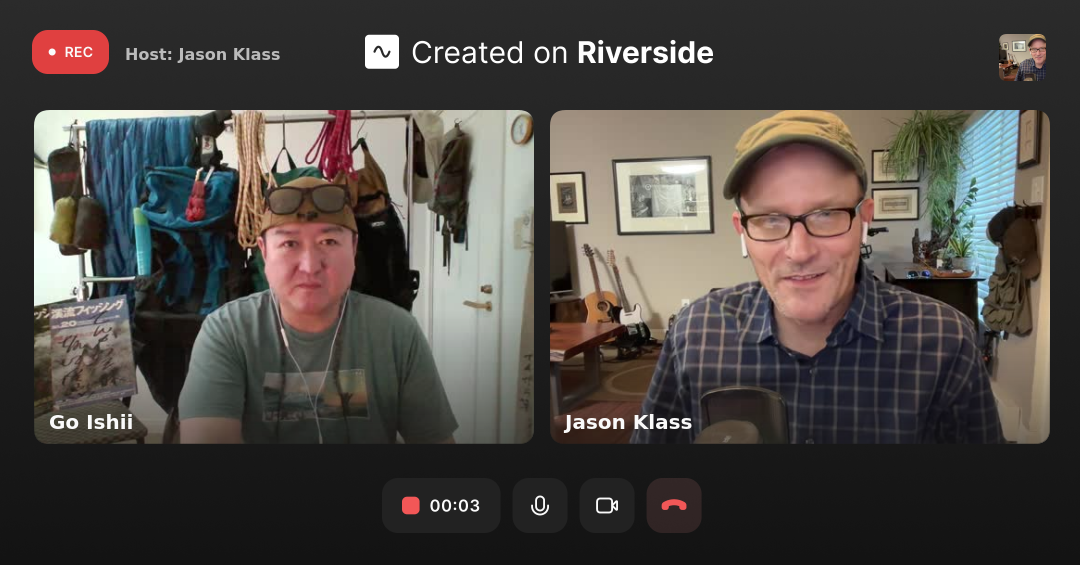
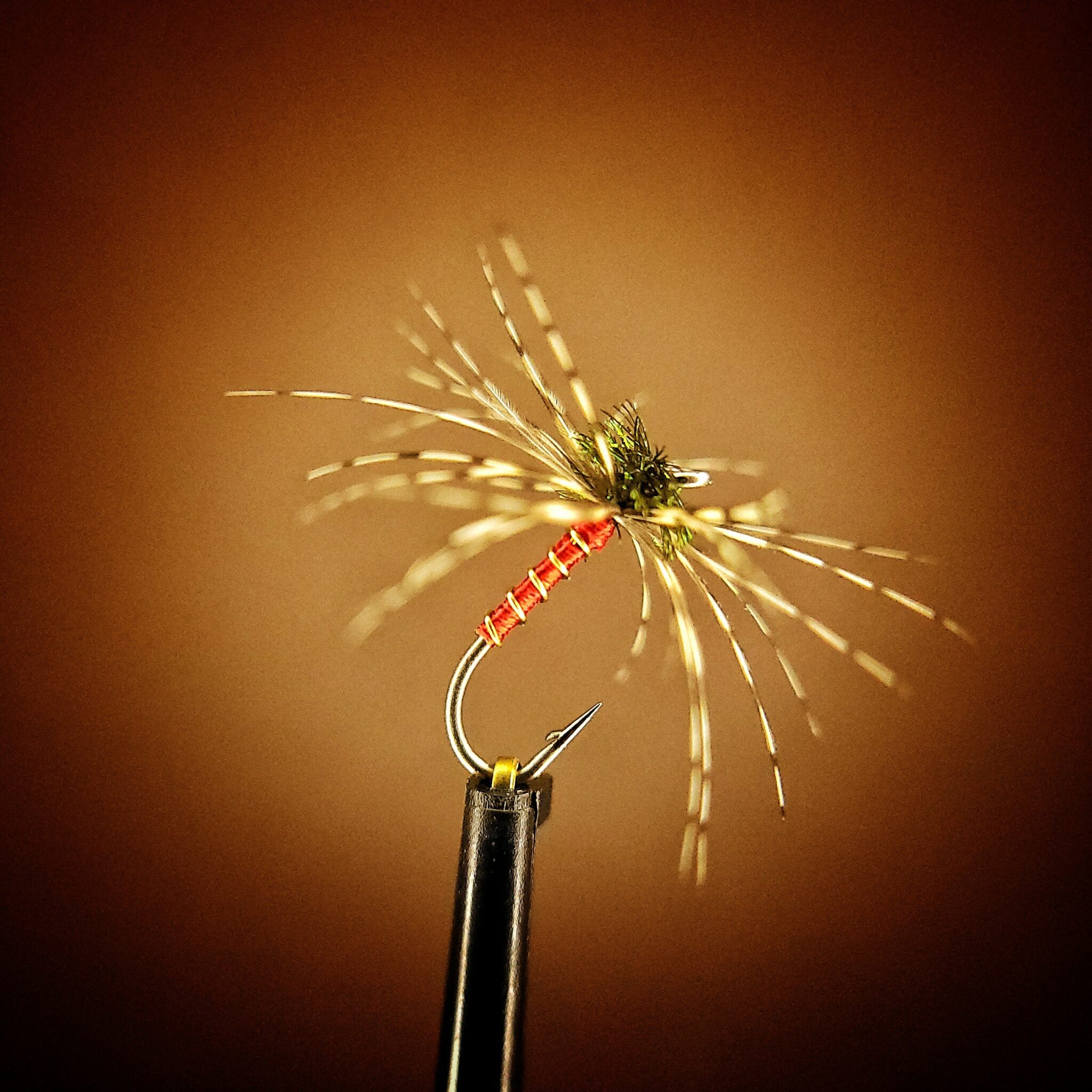

5 Comments
I always figured that Japanese Tenkara fishers were just as idiosyncratic as American. They all do things their way. Besides, not everyplace has the same type of water with the same fish, so differences will be added there, too. Does Japan make good rods? Of course there are good rods made in Japan, but I bet there is some total crap, too. Yoshikazu Fujioka’s “My Best Streams” dispels many myths and even shows western influences on Japanese fly fishing.
Hi Michael, all of what you say is true. I think the Japanese have a reputation for being strict and compliant. So I imagine that’s what partially fueled the notion that the Japanese anglers must adhere to some dogma. Conversely, China has a reputation for producing low-quality, cheap goods. But I’ve cast some rods from China that were better than some Japanese ones. On top of that, a lot of Japanese tenkara rods have their rods made in China! The whole damn sport is idiosyncratic!
One of the things I’ve learned in life is that one man’s myth is another man’s reality. ” And with my wife’s lesson, I know what John means.
Good listening.
Can’t wait to finish.
Jason, really enjoyed this podcast. What I hear most is, “isnt that just cane pole fishing?”. Also, what really impresses me most is your ability to cast 39 feet of #4 level line! What rod were you using? Really liked your coverage of the Oni school.
Thanks for the compliments Gene! I was using Oni’s Honryu 450: https://www.tenkaraya.com/product/419 . That rod is fierce! I want one, but I’d almost never use it. It’s too big for most of the places I fish. But if I were going to take a trip to a big river, I’d want that rod in my hand.